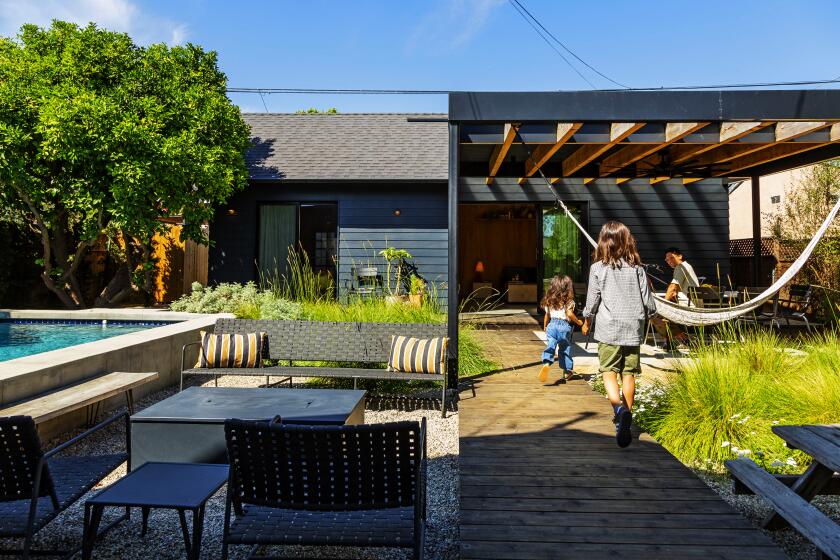A blending of national styles
- Share via
The Baroque world depicted in violinist Andrew Manze and the English Concert’s splendid program Thursday at the Walt Disney Concert Hall divided into distinct national styles.
Up in England, the chilly north, music was turgid and clotted, to pick up terms Manze used in typically beguiling remarks from the stage. In the sunny south, Italian music was full of verve and life. The introspective Germans and Austrians, meanwhile, were quirky, probing and experimental.
Fortunately, many of the composers began listening to one another, picking up ideas and generating a creative ferment that changed them all.
Purcell, for instance, was a Brit who in his “Fantasia a 4,” tried to pry open the closely layered, slow-moving national style heard a few moments earlier in Jenkins’ “Pavan a 4.” Purcell had learned to dance perhaps from Castello’s lively “Sonata per stromenti d’arco,” a piece of 17th century Italian “modern music” whose composer warned musicians, Manze said, to rehearse the piece before playing it in public.
In Salzburg, Biber was exploiting his ricocheting wit in “Mensa Sonora” (“The Sonorous Table”) and changeable “Fidicinium sacro-profanum” (“Sacred and Profane Fiddle Noise”). Pachelbel, a precursor of Bach, showed with his complex Suite in F sharp minor that he had more to offer than the ubiquitous Canon.
But the ever-creative Vivaldi may have made the biggest impact. We know Bach studied his music, and his fascinating Cello Sonata in B flat, played with luminous humanity by Alison McGillivray, bears a marked resemblance to Bach’s better-known Suites for Unaccompanied Cello.
We know that Bach changed and recycled his own music too. In a well-worth experiment to find its possible original version, Manze and his forces played a reconstruction of the familiar Suite in B minor for strings and continuo. Absent the flute and transposed down to A minor, the work revealed a new cohesion and inner variety.
In addition to McGillivray, Manze’s colleagues included violinist Walter Reiter, violist Yivali Zilliacus, harpsichordist David Gordon and theorbo player William Carter. They played Bach’s so-called Air for the G String as their single encore.
More to Read
The biggest entertainment stories
Get our big stories about Hollywood, film, television, music, arts, culture and more right in your inbox as soon as they publish.
You may occasionally receive promotional content from the Los Angeles Times.









